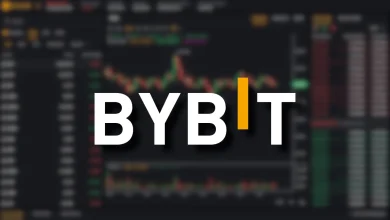Europol Targets Crypto Laundering and Online Recruitment of Minors


More than 400 police chiefs and senior law enforcement officials from 53 countries and 13 international organisations gathered at the headquarters of Europol in The Hague this week for the European Police Chiefs Convention (EPCC) 2025. The annual summit addressed the most pressing security threats confronting Europe, with an emphasis on digital technologies exploited by organised crime.
The event was opened by Europol Executive Director Catherine De Bolle and Lene Steen, Deputy National Commissioner of the Danish Police. Keynote speakers included EU Commissioner for Internal Affairs and Migration Magnus Brunner, Beate Gminder, Director General for Migration and Home Affairs, and Gerassimos Thomas, Director General for Taxation and Customs Union. Across two central panels, participants tackled the dual challenges of online recruitment of minors by criminal groups and financial crimes enabled by digital platforms.
In her address, Catherine De Bolle underscored the urgency of cooperation:
“The social and economic costs of organised crime are simply too high, so politically, economically, and socially damaging that no single country or organisation, however powerful, can confront them alone. That is why the law enforcement community must redouble its efforts to modernise, strengthen, and deepen international police cooperation.”
Crime-as-a-Service: Protecting Vulnerable Youth
One of the panels examined the rapid rise of Crime-as-a-Service, where organised crime groups rent out illicit skills ranging from cyberattacks to physical violence. Law enforcement officials warned of an alarming trend: minors being drawn into these networks through social media, online gaming, and encrypted platforms. This includes the emergence of “Violence-as-a-Service,” where intimidation or attacks can be contracted online.
Police leaders stressed the need for robust preventive measures, including school outreach, awareness campaigns, and clearer ethical guidelines for online spaces. They also highlighted the importance of centralised investigative units to track recruiters and enablers across borders, combined with stronger data sharing supported by AI and advanced analytics. Calls were also made for regulatory to prevent harmful content involving minors and enforce minimum age restrictions.
The recommendations reflected a shared determination to address how digital platforms are being weaponized to target young people, with law enforcement urging greater industry accountability alongside international cooperation.
Follow the Money: Cracking Down on Digital Finance Abuse
The second panel turned attention to financial crime, focusing on the misuse of digital finance, including virtual IBANs, decentralised finance platforms, crypto assets, and fintech tools. Officials warned that criminals are evolving quicker than law enforcement’s ability to investigate, exploiting secure-haven jurisdictions and overwhelming regulators with high-cost and highly complex tracing requirements.
Practical answers discussed included expanding cross-border “sprints” to freeze and seize assets, pooling resources for advanced blockchain and as a stand-alone criminal offence to streamline prosecutions. Strengthening public–private partnerships was also identified as a priority to improve intelligence sharing and build ahead warning systems against emerging threats.
These discussions highlighted both the scale of digital finance exploitation and the urgency of equipping investigators with the resources and partnerships needed to respond effectively.
Investor Takeaway






